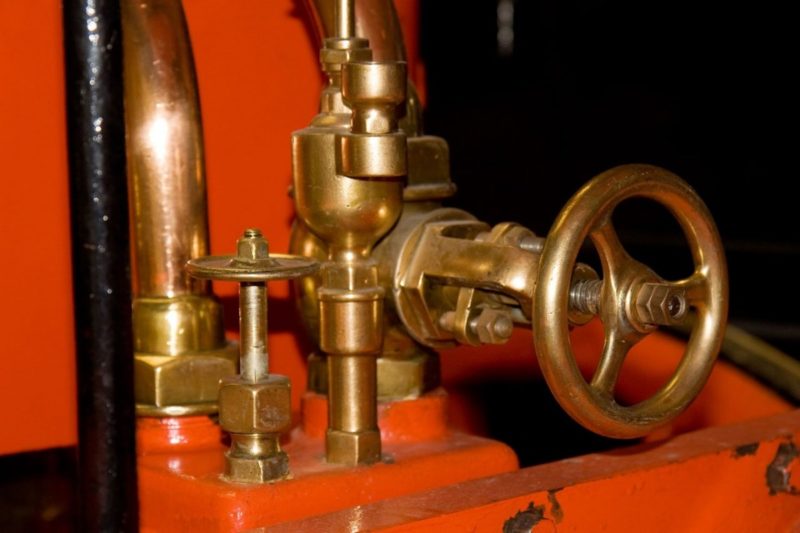Are you curious about what is the energy factor of a water heater? Depending on the type of water heater, the minimum recommended value of energy factor (EF) varies.
For gas storage water heaters, this value ranges from 0.60 to 0.75. Then for oil-fired water heaters, 0.57 to 0.62. Finally, for electric water heaters, 0.95 to 2.00. The higher the energy factor number goes, the more energy-efficient the heater is.
Water heaters are given EF ratings so that consumers will know which units are friendlier to the environment and which can save them more money in the long run. The energy factor is calculated by taking the unit’s power consumption and the amount of hot water it produces. In this article, not only will we answer your question about the energy factor of a water heater, but we will also provide you with other related information that you can use in the future. Scroll down, and enjoy!
The Energy Factor Of A Water Heater
The energy factor of a water heater is essential because it tells us a lot about the appliance, especially when it comes to its relationship with energy. We can better grasp the water heater’s energy efficiency thanks to the energy factor. The higher the value (EF) goes, the better the unit’s efficiency is. However, note that this does not mean that the operating costs will be lower than units with lower EF ratings. The reason is that other factors like the power source, type of water heater, and tank size need to be taken into the equation.
We can be aware of three main things about the water heater by knowing its energy factor. First is the heat loss from the water while it goes in and out of the heater tank. Second is the amount of heat loss from the water stored idly in the tank. Finally, we will know the amount of heat from the power source that heats the water and how much of it is wasted.
The energy factor is one of the things you have to look at when choosing a water heater model to purchase, but it should not be the end all be all. If you want to save energy and money in the long run, you have to choose the water heater that best suits your needs. The type of water heater, its size, and the type of fuel are all equally important. After considering these other factors, you now have the option to narrow it down even more by taking EF into the picture.
The minimum energy factor for a gas-fired water heater is 0.63 for 30-gallon tank size, 0.62 for 40 gallons, 0.60 for 50 gallons, and 0.75 for 60 gallons. When looking at oil-fired water heaters, we have a minimum EF of 0.62 for 30 gallons, 0.60 for 40 gallons, 0.59 for 50 gallons, and 0.57 for 60 gallons. For electric water heaters, we have a standard 0.95 EF for tank sizes of 30, 40, and 50 gallons, except for a 60-gallon tank which needs to have an energy factor of 2.00 at least. To read and discover more information about what is the energy factor of a water heater, continue reading.
Other Types Of Water Heating Systems
As technology advances, many innovations have happened in the attempt to set a new efficiency standard, and the same applies to water heaters. Water heaters’ unconventional and more advanced heating techniques are the next step towards a more efficient water heating method and system. Some of the most popular ones we will be going over include heat pumps, hybrid gas, indirect, integrated, and solar water heating systems.
A heat pump water heater absorbs heat from its surroundings and transfers it to the unit to heat the water. By making use of surrounding warmth, efficiency is improved. You can save from operating costs, but its higher price and maintenance fees. Hybrid gas water heaters utilize a small condensing burner with slightly more output capacity than what it can store. Instead of having its power source for water heating, an indirect water heater uses the boiler of the house. The water is stored inside an insulated water tank, this lowers the amount of heat that escapes the tank, and the water stays hot longer.
Integrated water heaters are usually the “go-to” in newly built modern houses. An integrated heater is when the water heater and space heater are combined to share one power source resulting in more efficiency overall. Finally, solar water heaters are very efficient units that use renewable power from the sun’s rays. The only limitation is the inconsistency because the appliance depends heavily on uncontrollable factors such as weather conditions and location. Do you know how to install solar water heaters properly? You may also be interested to know about common water heater problems.
It’s A Wrap!
Thank you very much for reading this article until the end. The time and effort that you spend are appreciated. We hope that you can use this knowledge about what is the energy factor of a water heater in the future. You know about one of the most important factors to consider when choosing what water heater unit to purchase. We look forward to helping you more in the future. Always know that we love answering the questions in your head. Take care! Don’t hesitate to know these things too; read about how to clean water heater and how to turn up heat on water heater.

